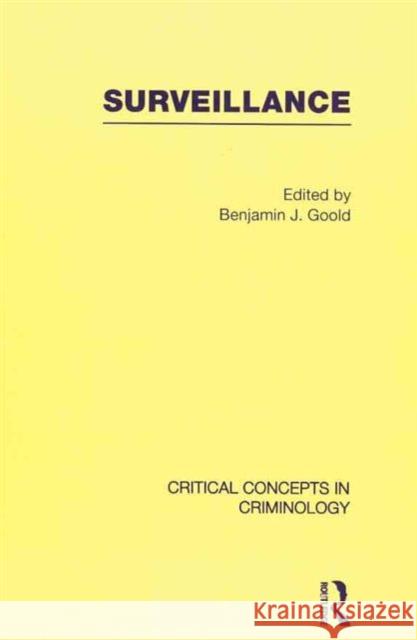Surveillance: Critical Concepts in Criminology » książka
Surveillance: Critical Concepts in Criminology
ISBN-13: 9780415458191 / Angielski / Twarda / 2009 / 1640 str.
Over the past fifty years, the apparatus of surveillance in modern societies has expanded to such an extent that almost every aspect of our public and private lives is now open to scrutiny and analysis. Each time we walk down a city street or pass through a shopping centre, CCTV cameras record our every move. Credit card and online purchases are logged and used to construct ever more detailed profiles of our consumption patterns and preferences. Personal information held by a bewildering array of state and private organizations is becoming increasingly centralized and searchable. As a result, modern life and citizenship is now intimately bound up with surveillance and the construction of data profiles, profiles that are largely beyond our power to alter or amend, and which may bear little resemblance to how we see ourselves (or want to be seen). Combining fear of crime and a desire for social control, surveillance is an inescapable fact of modern life. Research on surveillance conducted by governments, academics, and the private sector has exploded in recent years and this new title in the Routledge series, Critical Concepts in Criminology, addresses the need for an authoritative reference work to make sense of this rapidly growing and ever more complex corpus of interdisciplinary scholarly literature. Edited by Benjamin Goold of Oxford University s Centre for Criminology and organized into three principal parts, Surveillance is a four-volume collection of the foundational and the very best cutting-edge scholarship. Surveillance is fully indexed and includes a comprehensive introduction, newly written by the editor, which places the collected material in its historical and intellectual context. An essential reference collection, it is destined to be valued by scholars and students of criminology as well as those working in the allied fields of sociology, politics, and urban studies as a vital one-stop research and pedagogic resource."











